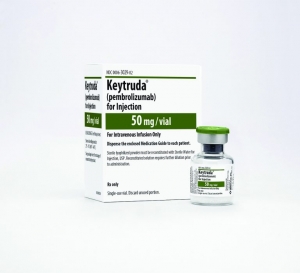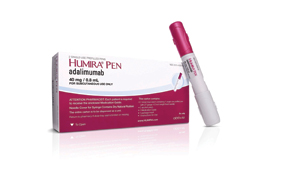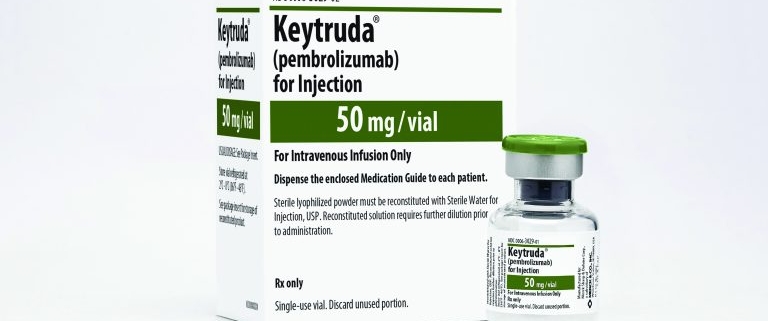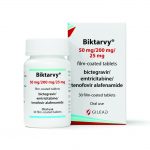Top 200 Medicines Annual Report: Climbing Mount Humira
While Humira remains the best-selling prescription product worldwide, Keytruda has risen to the No. 2 global rank and is on track to eventually claim the top spot.
By Andrew Humphreys • [email protected]
Keytruda is on pace to overtake Humira as the top-selling prescription medicine worldwide when AbbVie’s biologic therapy finally succumbs to patent expirations that will allow for U.S. biosimilar competition during 2023. Merck’s Keytruda is projected by industry analysts to reach $24.91 billion in global sales during 2026, which would be the highest-ever total generated in one calendar term by a prescription medicine, topping Humira’s benchmark of $20.36 billion in combined sales between AbbVie and Japan’s Eisai during the 2018 period.
During 2019, Humira remained firmly entrenched in the No. 1 sales spot with combined AbbVie-Eisai reported sales of about $19.74 billion. Humira was so far ahead of the field in terms of total worldwide sales during 2019 that the autoimmune disease drug generated more than the combined amounts of No. 2 Keytruda ($11.08 billion reported by Merck) and No. 4 seller Opdivo (coming in at nearly $8.02 billion between marketers Bristol-Myers Squibb and Japan’s Ono Pharmaceutical). 
Keytruda’s total sales for 2019 represented annual growth of about $3.91 billion, with Merck reporting $7.17 billion for the product in 2018. To put that impressive improvement in perspective, only 22 prescription medicines in the Med Ad News Top 200 generated 2019 sales of more than $3.91 billion.
Humira’s 2020 got off to a positive start with AbbVie reporting global first-half net revenue of $9.54 billion, representing growth of 2.4 percent on a reported basis and 3 percent operationally. Humira’s U.S. net revenue in first-half 2020 amounted to $7.63 billion, an increase of 8.9 percent year-over-year on a reported basis. Internationally, net revenue totaled $1.91 billion, falling 17.2 percent on a reported basis compared to first-half 2019 due to biosimilar competition.
Worldwide sales during January-June 2020 for Keytruda advanced 36 percent to $6.67 billion versus the one-year-earlier period. An anti-PD-1 therapy, Keytruda works by increasing the ability of the body’s immune system to help detect and fight tumor cells. The humanized monoclonal antibody blocks the interaction between PD-1 and its ligands, PD-L1 and PD-L2, thereby activating T lymphocytes which may affect tumor cells and healthy cells.
Whiles Humira was launched in the U.S. market during January 2003 and was last granted a new indication by the Food and Drug Administration in June 2016, Keytruda was first approved by the FDA in September 2014 and continues to win new indications each year. Thanks in large part to Keytruda, Merck has the industry’s largest immuno-oncology clinical research program with more than 1,200 trials studying the product across a wide variety of cancers and treatment settings. In June 2020 alone, Keytruda won FDA marketing clearance for two new indications: the first-line treatment of patients with unresectable or metastatic microsatellite instability-high or mismatch repair deficient colorectal cancer, and for treating patients with recurrent or metastatic cutaneous squamous cell carcinoma that is not curable by surgery or radiation.
Slotting into the No. 3 sales spot for 2019 in between Keytruda and Opdivo was the multiple myeloma medicine Revlimid at about $10.82 billion. Revlimid joined Bristol-Myers Squibb’s product arsenal in November 2019 after the company completed the $74 billion acquisition of Celgene. Bristol-Myers Squibb reported first-quarter 2020 global sales of $2.92 billion for Revlimid.
With Opdivo and Revlimid, Bristol-Myers Squibb markets two of the four largest-selling prescription products worldwide. The cancer medication Opdivo generated sales of nearly $1.77 during the first three months of 2020, down 2 percent year-over-year for the New York-based drug manufacturer. U.S. marketing clearance was granted in June 2020 for another indication: the treatment of patients with unresectable advanced, recurrent or metastatic esophageal squamous cell carcinoma after prior fluoropyrimidine- and platinum-based chemotherapy. As the medicine continues to win regulatory approval for new uses, EvaluatePharma (EP) projected sales of about $12.68 billion for 2026, which would rank Opdivo No. 2 globally after Keytruda according to the industry tracker’s June forecast data.
The COVID-19 pandemic has cast a long shadow over the pharmaceutical industry – which is battling to find treatments – with the long-term impact still largely unknown, according to the EvaluatePharma World Preview 2020, Outlook to 2026 report released in July. The report shows a $7.8 billion decrease in the worldwide product consensus forecast change during March-June 2020 in response to COVID-19.
“Since the start of the global lockdown caused by the COVID-19 pandemic, analyst forecasts for 2020 product sales have dropped by $4.9 billion for the top 15 companies,” the report says (see table below). “With a decrease of $1.25 billion, Merck is expected to lose the most sales this year of the top 15 companies, due to the pandemic. Around two thirds of the company’s pharmaceutical revenue is derived from physician-administered products, which have been heavily impacted by social distancing measures leading to fewer patient visits; Keytruda’s 2020 forecasts alone have decreased by $448 million.”
EP says many top companies have experienced decreased demand for physician-administered medicines, and anticipates a $278 million loss on demand for Humira.
Please click the link below to view Med Ad News‘ Top 200 Medicines listing based on prescription drug sales during 2019.





